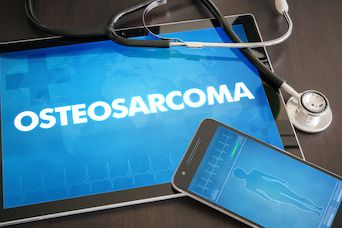USDA Grants Canine Osteosarcoma Vaccine With Conditional License
A new canine osteosarcoma vaccine has been granted a conditional license and will be tested among 2 dozen veterinary oncology groups. With enough success, the vaccine could be given a full license and unrestricted distribution in the United States.

Osteosarcoma is the most common primary bone tumor in dogs, but a new vaccine is striving to change that narrative. Aratana Therapeutics, a company focused on innovative therapeutics for dogs and cats, announced that their Canine Osteosarcoma Vaccine, Live Listeria Vector (AT-014), has been granted a conditional license by the United States Department of Agriculture (USDA) Center for Veterinary Biologics.
The vaccine uses a listeria-based antigen delivery system that activates cytotoxic T-cells. This directs the T-cells to fight off cancer cells—capitalizing on the dog’s immune system and its ability to attack bacterial infections.
"We know that most of these dogs relapse with metastatic disease, so clearly cancer is left after chemotherapy," said Nicola J. Mason, BVetMed, PhD, assistant professor of medicine and pathobiology at the University of Pennsylvania School of Veterinary Medicine and principal investigator of clinical trials investigating the new vaccine. "And we were asking the question: Could this vaccine induce an immune response which would eliminate those remaining cancer cells?”
During a clinical trial, researchers evaluated 18 dogs with primary tumor removal and gave them 4 doses of carboplatin chemotherapy followed by the new canine osteosarcoma vaccine every 3 weeks for 3 doses. The median survival rate was 956 days with the vaccine, compared with 423 days in a historical control group.
Common side effects reported included lethargy, diarrhea, and fever; only 4 serious adverse events were reported in a separate field safety study.
“Since there haven't been advances to raise the standard of care in nearly 20 years, dogs often face a poor prognosis," said Ernst Heinen, DVM, PhD, chief development officer of Aratana Therapeutics. "We are hopeful that our canine osteosarcoma vaccine will be a new tool for veterinary oncologists to prolong survival in dogs with osteosarcoma."
The new vaccine will be made available for purchase at approximately 24 veterinary oncology practice groups across the United States who will participate in a new extended field study. Aratana plans to conduct this study early this year as part of the USDA requirement for products to progress from a conditional license to a full license.
If the new study receives successful results, the USDA may approve the vaccine and allow unrestricted sales throughout the United States.
"This technology is very exciting for everyone; it's something completely new," Dr. Heinen said.